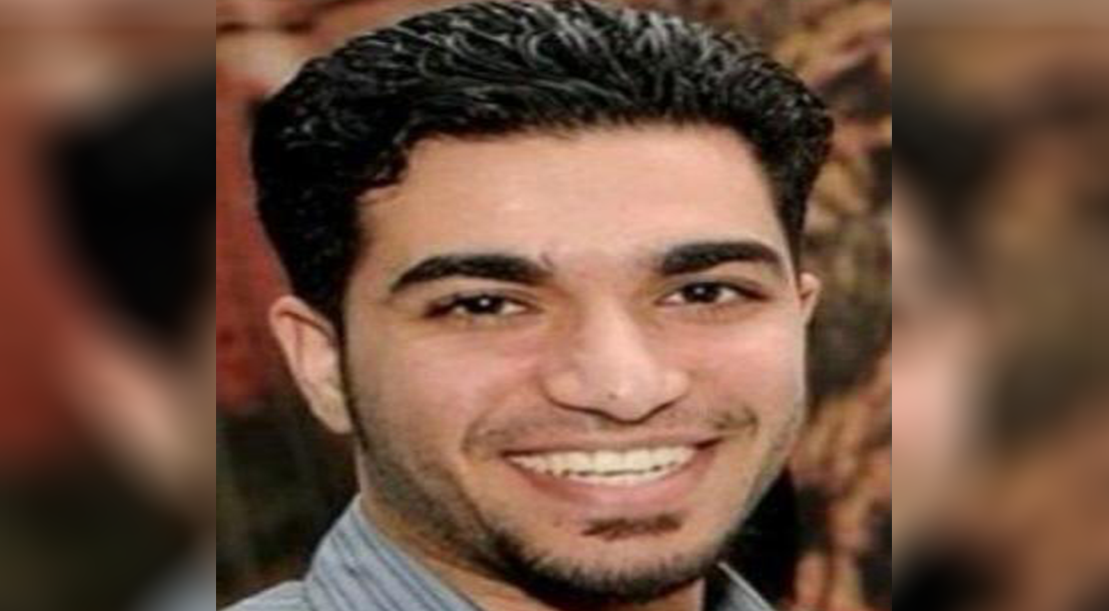Sayed Ali Moosa Jaafar, was a 34-year-old court porter when he was arrested without a warrant in October 2014. He was consequently tortured and convicted in an unfair trial. Sayed Ali is currently serving his sentence in Jau Prison.
On 25 October 2014, at around midnight, officers in civilian clothing and riot police broke into Sayed Ali’s house, taking him out of his room and beating him. He was taken to the bus, where he was subjected to electric shocks. Officers returned to his house and confiscated two phones. This was all done without any warrant and without indication of a reason. Sayed Ali was not summoned prior to his arrest.
Sayed Ali was forcibly disappeared for a week, during which he was being interrogated at the 17th Roundabout Police Station, and after that, he was transferred to Dry Dock Detention Center, where he called his family to tell them he was arrested. His family was able to visit him a month after his arrest, he couldn’t walk normally or sit. His face was discoloured as a result of torture.
During interrogation, Sayed Ali had been subjected to severe beatings, insults, sexual assault, and electric shocks. His lawyer was not present, and Sayed Ali was forced to confess to the charges against him. He was not treated for the injuries sustained from torture, including a knee injury. A week after the arrest, Sayed Ali was presented to the prosecution, without a lawyer, where he was shown birdshot pellets and told they belonged to him, an accusation Sayed Ali denied.
On 22 September 2015, Sayed Ali, along with nine other defendants, was convicted of arson, possession and acquisition of flammable and explosive devices, and illegal assembly and sentenced to ten years in prison. The Court of Cassation reduced the sentence to three years on 22 November 2016. Sayed Ali was also sentenced to 8 years for assaulting officers and bearing arms at a public assembly, meaning the total of his sentence reached 11 years after appeal.
The Bahraini authorities’ actions against Sayed Ali, from his arrest without a warrant to his coerced confession, violate international law, including the Convention Against Torture and the International Covenant on Civil and Political Rights, both of which Bahrain is a party to. Furthermore, his denial of treatment for injuries sustained under torture constitutes a violation of the Mandela Rules. ADHRB calls upon authorities to urgently investigate allegations of ill-treatment and torture of the victim with a view of holding perpetrators accountable.





